Past CSPO Events
- May 10, 2024CSPO DC - New Tools for Science Policy
Adapting Federal Programs to Evolving Public Values: Insights from the Department of Energy
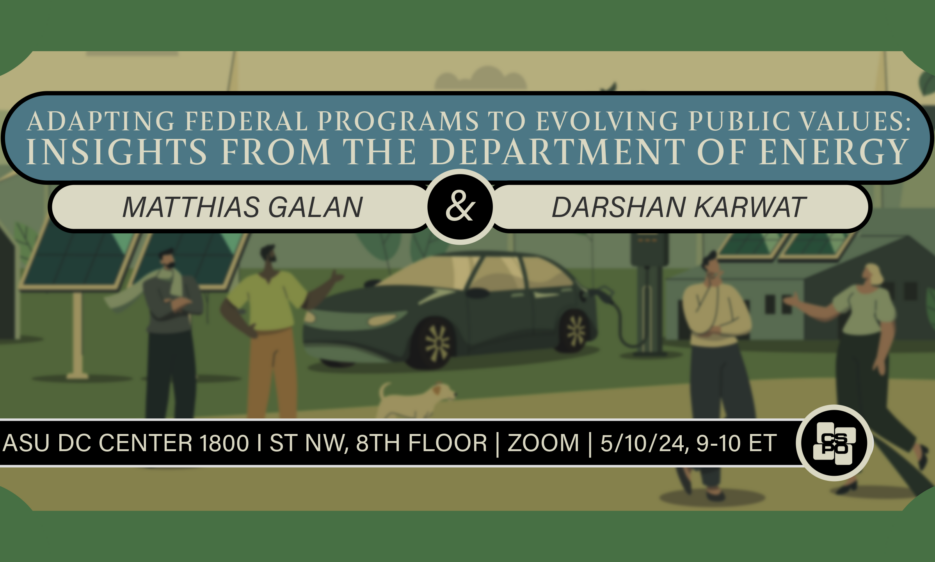
Darshan Karwat, Matthias Galan
- April 30, 2024CSPO DC - New Tools for Science Policy
ASU’s Milo Space Science Institute: Increasing the World’s Access to Space
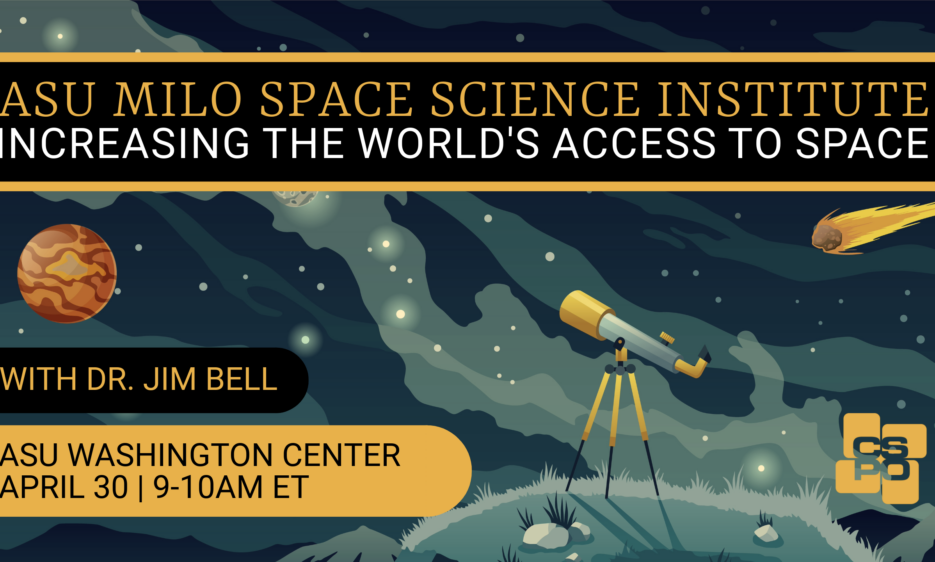
This seminar described the Milo Institute’s founding, goals and partnerships with universities, research institutes and space agencies.
Jim Bell
- April 29, 2024CSPO DC - New Tools for Science Policy
Public Funding, Patents, and Technology Transfer: Learning from the Contrasting Oxford and Texas Models of COVID-19 Vaccine Production and Distribution

This seminar examined how the innovation ecosystem functioned during the COVID-19 pandemic and offer insights for future challenges
Ken Shadlen
- April 18, 2024—April 20, 2024Co-sponsored
Citizens’ Assembly School
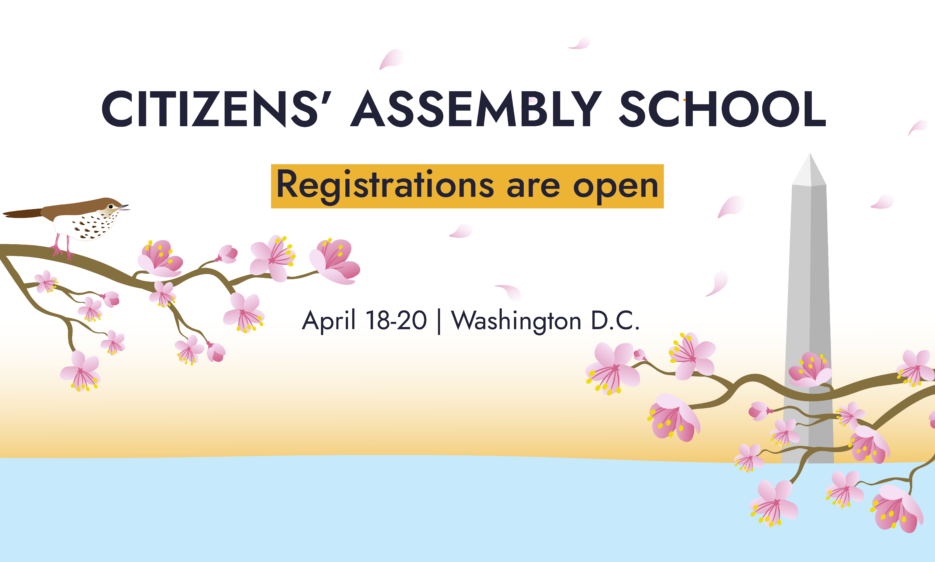
Learn about CSPO and FIDE’s (Federation for Innovation in Democracy) collaborate to host a Citizen’s Assembly School.
- April 17, 2024CSPO DC
North Carolina Sustainable Textiles Innovation Engine
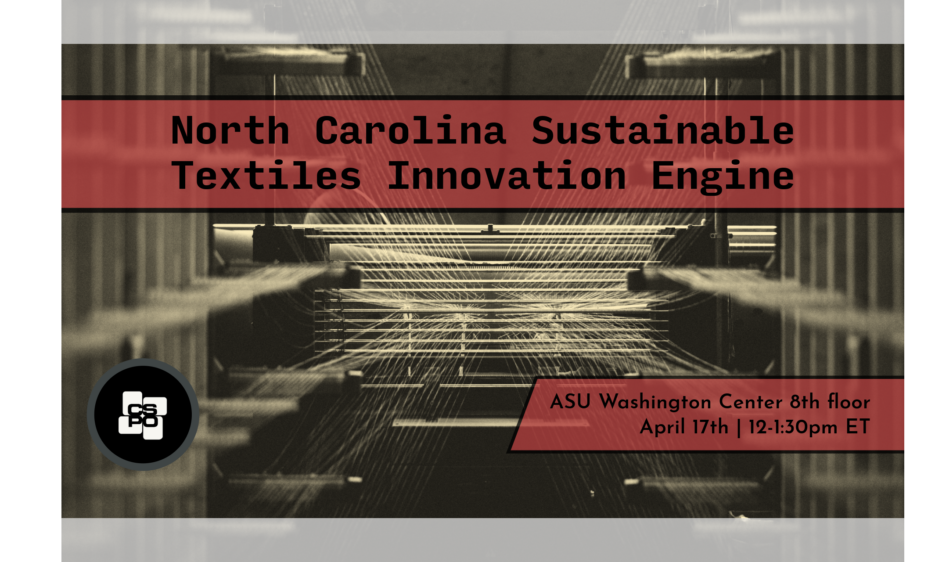
This seminar discussed the challenges in a rural region, innovation opportunities that build on regional strengths; and new approaches
Catherine Armstrong, Jasmine Cox-Wade, Ericka Ford, John Hardin, JaLisha Richmond
- April 05, 2024CSPO DC
Assessing Innovation Hubs and Regional Innovation Engines: New Methods
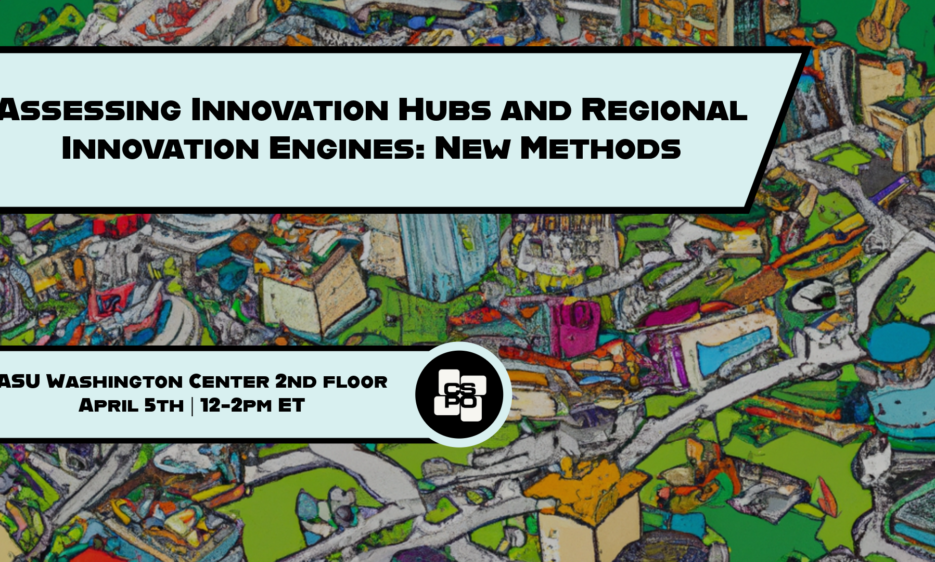
This seminar discussed new metrics for how funds are being used, how communities support innovation, and its impact on communities.
Maryann Feldman, Tom Guevara, David Kaiser, Isaac McCoy, Mahmud Farooque, Dr. Fallon Wilson
- March 21, 2024CSPO DC
Technology Policy and Regional Innovation Engines: Baltimore Equitech

This CSPO Conversations program will bring together federal policymakers in science and technology policy, innovation policy, and regional development with Baltimore-based entrepreneurs, innovators, and ecosystem builders.
Kory Bailey , Sherrod Davis, Mark Anthony Thomas, Deborah Hemingway, Tammi Thomas, Ellington West, Christy Wyskiel, Arthur Daemmrich
- March 21, 2024CSPO DC - New Tools for Science Policy
Inspirations from European Technology Assessments: Institutions, Practices and Key Debates
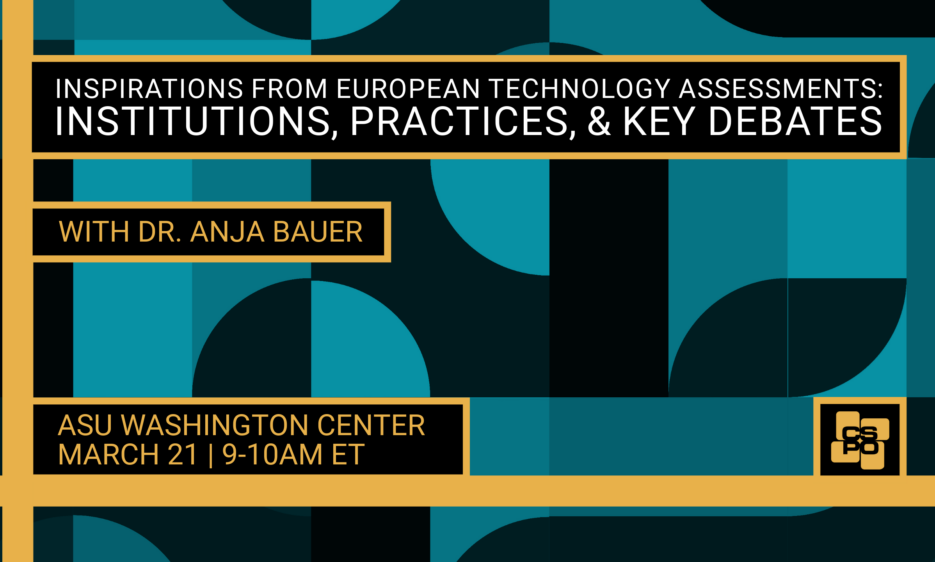
Anja Bauer